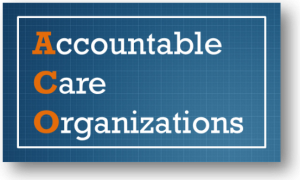| . CLICK HERE to learn more about how BHM helps your organization. |

Accountable care organizations (ACOs) have been the most popular vehicle for value-based payment model adoption to date, with over 923 ACOs covering approximately 32.4 million lives across the country. Recognizing the importance of successful ACO implementation, the Health Care Transformation Task Force (HCTTF) released a comprehensive analysis of high-performing ACOs and ACO success factors.
The study, “Levers of Successful ACOs,” draws on extensive interviews with 11 highly successful ACOs, including HCTTF and non-HCTTF members, to assess the structures and strategies that have led to their success. These new resources are a tactical playbook for understanding, prioritizing, and implementing successful ACOs.
“ACOs have demonstrated great promise at improving care and reducing costs, as evidenced by the latest results from Medicare ACOs,” said Executive Director Jeff Micklos. “The Task Force is committed to the spread of alternative payment models and sharing learnings from model participants. This study includes replicable strategies especially beneficial for smaller, independent organizations without the capital to invest in custom, hands-on support.”
ACO Success Factors
ACOs and other health care stakeholders can use the study to:
- Evaluate proficiency across key activities;
- Educate organizations about the importance of these key activities; and
- Prioritize improvement efforts based on unique needs.
“The greatest driver of future ACO growth will be the success of existing ACOs, as fence-sitting providers will be swayed by participants’ achievements or failure, as well as the positive evolution of the ACO model,” said Danielle Lloyd, vice president, policy and advocacy, for Premier Inc., co-chair of the Work Group and a member of the Health Care Task Force Executive Committee. “This study applies not only to new ACOs considering these arrangements for the first time, but also to those existing ACOs that are considering whether to renew contracts, progress to risk or expand arrangements with additional payers by providing guidance on opportunities to improve.”
“With several years of the accountable care movement under our belt, we’re learning a lot about what works and what doesn’t. While approaches to ACO implementation vary, this study covers the core attributes of success for others to emulate,” said Travis Broome, vice president for policy at Aledade, Inc., and co-chair of the Task Force’s Accountable Care Work Group.
The study is presented in four parts:
- Identifying the Levers of Successful ACOs
- Evaluate proficiency across key activities;
- Educate organizations about the importance of these key activities; and
- Prioritize improvement efforts based on unique needs.
- Achieving High Value Culture
- Involvement by senior decision-makers (i.e., governance bodies) in ACO operations
- Physician and community practice engagement
- Expanded clinical partnerships
- Proactive Population Health Management
- Systems for identifying high-risk patients
- General care management functions
- Specific disease management programs
- Structure for Continuous Improvement
- Operational infrastructure for performance measurement
- Tying performance to compensation and network contracts
- Participation in shared learning opportunities
The series is a product of the Health Care Transformation Task Force’s Accountable Care Work Group, in keeping with the Task Force’s mission to spread best practices with freeware. This group is comprised of Task Force members who are dedicated to determining the factors that enable ACO success in ways that are scalable and applicable across the public and private sectors.
. CLICK HERE to learn more about how BHM helps your organization.






